Cancer Engineering

Eric Topol
Opening Plenary Session & Speaker
📅 Wednesday, October 8, 2025
⏰ 4:45 PM - 6:00 PM
Eric Topol, Featured Speaker
Dr. Eric Topol is this year’s conference opening speaker. He is founder and director of the Scripps Research Translational Institute, a professor of Molecular Medicine and Executive Vice-President at Scripps Research Institute, and a senior consultant at the Division of Cardiovascular Diseases at Scripps Clinic in La Jolla, Calif. He is renowned for his transformative work in cardiology, digital health, and precision medicine. He has published over 1,300 articles, is among the top 10 most cited in the field, and is a member of the National Academy of Medicine. He authored four bestselling books, including his latest book, Super Agers: An Evidence-Based Approach to Longevity, and leads major NIH grants that promotes innovation in medicine.
Following the session with Dr. Eric Topol, there will be a limited book signing with copies of Super Agers: Evidence Based Approach to Longevity. More details will be announced soon.
Welcome from 2025 Co-Chairs
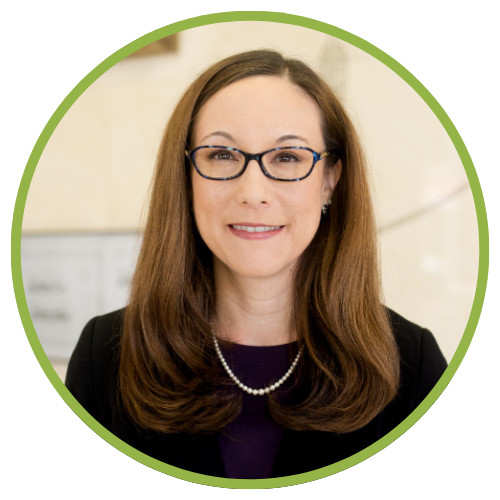
Dr. Shelly Sakiyama-Elbert
State of the Society
📅 Thursday, October 9, 2025
⏰ 11:00 AM - 12:15 PM
Dr. Shelly Sakiyama-Elbert, president of the Biomedical Engineering Society, will deliver the annual State of the Society address at BMES2025. Dr. Sakiyama-Elbert is Vice Dean for Research and Innovation and a Professor of Biomedical Engineering at the University of Washington College of Engineering. Her research focuses on drug delivery, biomaterials, and cell transplantation for regenerative medicine. A Fellow of both BMES and AIMBE, she has published extensively and served in numerous national advisory roles. As BMES President, she is committed to fostering a collaborative, and forward-looking community that supports innovation and impact across biomedical engineering.
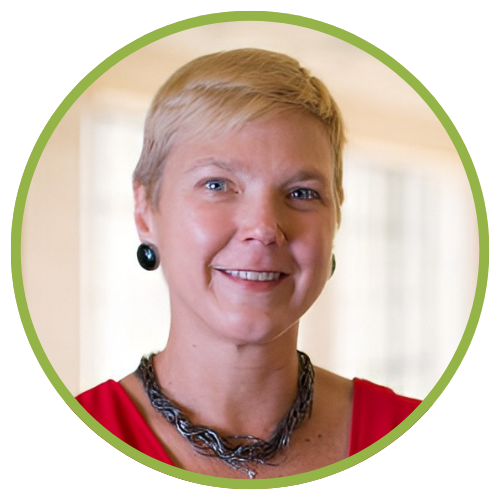
Dr. Linda Griffith
BMES Robert A. Pritzker Distinguished Lectureship Award
📅 Thursday, October 9, 2025
⏰ 11:00 AM - 12:15 PM
Mice, or Microfluidics? Humanizing Biomedical Research with “NAMs"
Dr. Linda Griffith, this year’s recipient of the prestigious BMES Robert A. Pritzker Distinguished Lectureship Award — BMES’s premier recognition — highlights this fall’s BMES2025 Annual Meeting. Her lecture will be on Thursday, October 9. Griffith is the School of Engineering Professor of Teaching Innovation in the Department of Biological Engineering at MIT and is widely recognized for her groundbreaking work in biological engineering, blending cutting-edge research with a commitment to advancing education and innovation. Grifith is a member of the National Academy of Engineering, and elected into the National Academy of Medicine for her pioneering work in tissue engineering, biomaterials, and systems biology, including developing the first “liver chip” technology. She established MIT’s Biological Engineering Department.
-
Pritzker Lecture Topic
Mice, or Microfluidics? Humanizing Biomedical Research with “NAMs”
Research and development in chronic inflammatory diseases – which often skew female – is hindered by the use of poorly representative animal models for disease mechanisms and therapeutic validation. The animal-human gaps, especially in immunology, have spurred two concurrent technological developments that are now merging: systems biology/immunology analysis of patients, and microphysiological systems (aka “organs on chips”, or living patient avatars). The NIH, which now refers to these approaches as “Novel Approach Methods” (NAMs) has launched the “Complement-ARIE” (Complement Animal Research In Experimentation) program to bolster technology development and deployment in this merger. Gynecology presents fascinating opportunities for setting the performance bar for new technologies that will have broad applicability in all of biomedical research, as illustrated the case study in drug development for endometriosis, where control of steroid hormones is essential for physiology.
.png)
Yogi Ramesh Pandey
Just for Laughs! LOL to be Well
📅 Thursday, October 9, 2025
⏰ 3:00 PM - 4:00 PM
Especially in times of uncertainty, there's no better medicine than a good laugh. Join Yogi Ramesh Padney, the renowned Laughing Yogi and founder of the Universal Temple of Yoga and Inner Peace in Los Angeles, Calif., in a special BMES2025 appearance aimed at benefitting hearts and minds and lifting our spirit. You don't want to miss him.
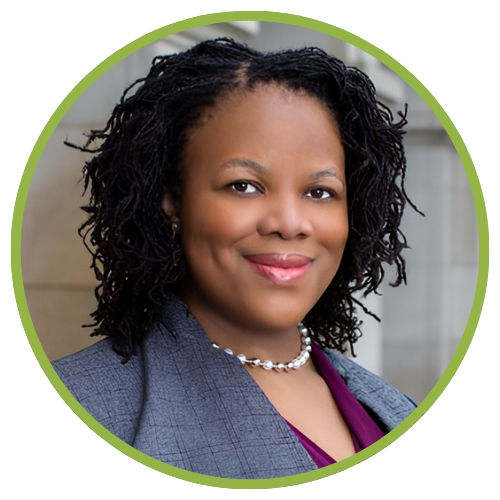
Dr. Princess Imoukhuede
Social Impact Lecture Award
📅 Thursday, October 9, 2025
⏰ 5:15 PM - 6:15 PM
The BMES Social Impact Lecture Award (formerly the Diversity Award) honors individuals and initiatives driving meaningful progress in equity, inclusion, and representation across biomedical engineering. Join us for this year’s lecture featuring Princess Imoukhuede, PhD, Hunter and Dorothy Simpson Endowed Chair and Professor of Bioengineering at the University of Washington.
.png)
Dr. Cynthia Reinhart-King
Herbert Voigt Distinguished Service Award
📅 Thursday, October 9, 2025
⏰ 5:15 PM - 6:15 PM
The Herbert Voigt Distinguished Service Award recognizes members who have made extraordinary contributions to the Biomedical Engineering Society. Join us in celebrating this year’s honoree, Cynthia Reinhart-King, PhD, BMES Past President and Department Chair & John W. Cox Chair of Bioengineering at Rice University.
.png)
W. Gregory Sawyer
NIH/NIBIB Lecture
📅 Friday, October 10, 2025
⏰ 11:00 AM - 12:00 PM
The NIH/NIBIB Lecture highlights innovative research shaping the future of human health. This year’s lecture will focus on cancer engineering with featured speaker W. Gregory Sawyer, PhD, Chief BioEngineering Officer and Chair of the Department of BioEngineering at the Moffitt Cancer Center. Join us to explore how engineering breakthroughs are transforming cancer research and treatment.
-
Learn More About the Speaker
W. Gregory Sawyer
Greg Sawyer is a professor, engineer, scientist, cancer researcher and cancer survivor who has turned his attention from space systems to exploring new frontiers in the battle against cancer. Greg was a member of the original Mars Rover design team at NASA’s Jet Propulsion Laboratory, and his approach to cancer research follows a multidisciplinary team approach. A major goal of his research is to allow scientists to visualize and interact with cancer using bio-printing techniques and other tools pioneered in Soft Matter Engineering. Greg is a member of the National Academy of Inventors, Tribology Gold Medal winner, a member of the Florida Inventors Hall of Fame, holds over 40 patents, has authored over 200 scientific publications, has over 20,000 citations, and has mentored dozens of PhD students – many of whom are now faculty members and researchers working at the interfaces between engineering, science, and biomedicine. -
Lecture Topic
Cancer Engineering
Cancer engineering is an interdisciplinary approach that aims to address the complexity of cancer by integrating innovative methodologies from engineering and the physical sciences within the context of cancer biology. This conceptual framework integrates 12 fields: system dynamics, imaging, radiation and spectroscopy, robotics and controls, solid mechanics, fluid mechanics, chemistry and nanomaterials, mathematics and simulation, cellular and protein engineering, kinetics and thermodynamics, materials science, manufacturing and biofabrication, and microsystems. By uniting these fields, cancer engineering confronts key challenges such as tumor heterogeneity, microenvironmental complexity, treatment toxicity, and limitations in current preclinical models. The approach seeks to accelerate both understanding and translational progress by leveraging advanced quantitative methods, new biomaterial platforms, dynamic modeling, and tools for precision measurement and intervention. Through interdisciplinary collaboration, cancer engineering aspires to deepen mechanistic insight and drive the rapid development of new technologies and therapies that aim to transform cancer research and patient care.

Dr. Gargi Maheshwari
Wallace H. Coulter Award for Healthcare Innovation Award
📅 Friday, October 10, 2025
⏰ 1:00 PM - 2:00 PM
Translating Science Into Products – Journey of Bringing Vaccines and Biologics to Life
The Wallace H. Coulter Award for Healthcare Innovation celebrates leaders who shape the future of healthcare through groundbreaking biomedical technologies. Join us for this year’s award lecture featuring Gargi Maheshwari, PhD, Vice President of Biologics Science & Technology at Merck.
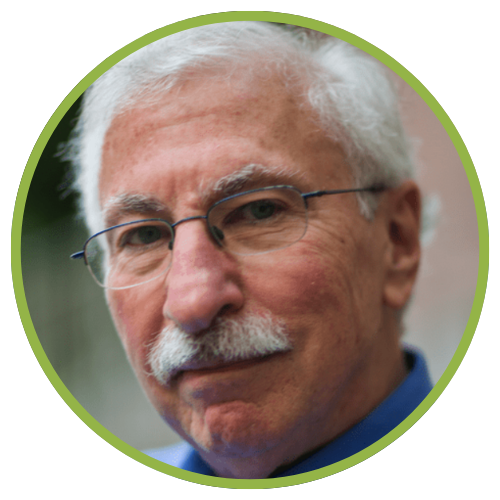
Dr. Buddy Ratner
BMES Athanasiou Medal of Excellence in Translational Bioengineering Award
📅 Friday, October 10, 2025
⏰ 1:00 PM - 2:00 PM
Translating “Translation” into the Language of Bioengineering
The BMES Athanasiou Medal of Excellence in Translational Bioengineering Award honors leaders who transform discoveries into real-world innovations that advance biomedical engineering. Join us at the BMES Annual Meeting for this year’s award lecture featuring Buddy Ratner, PhD, Michael L. and Myrna Darland Endowed Chair in Technology Commercialization and Professor of Bioengineering and Chemical Engineering at the University of Washington.
Regulatory Science for BME Certificate Part 1: Why We Should Care About Medical Product Regulation Webinar
WEBINAR:
📅 Wednesday, September 10, 2025
⏰ 2:00 PM - 3:00 PM ET
Regulatory Science for BME Certificate Part 2: Fundamentals and Perspectives in Medical Product Regulation for Biomedical Engineers Workshop
WORKSHOP:
📅 Friday, October 10, 2025
⏰ 3:00 PM - 4:30 PM PT
Participation in both the virtual webinar and the in-person workshop at the BMES 2025 Annual Meeting will fulfill the requirements for completing a BMES certificate of participation program on the fundamentals of medical product regulation. The certificate program is designed for industry professionals who want to expand their knowledge of regulatory science.
The goal of the webinar is to provide motivation to learn more about regulatory science and to understand the context for the modern regulatory framework. The webinar will cover a brief history of medical product regulation in the US, fundamental laws that enable modern medical product regulation, and regulatory philosophies. It will include the FDA’s risk-based approach to regulatory burden, the shift away from reactive to proactive regulation, and the balance of minimizing public health risk with fostering innovation.
The workshop at the Annual Meeting will impart the fundamentals of translation and regulation of drugs, biologics, and devices in the US, as well as regulatory perspectives from experts in academia and industry.
All participants must register for the BMES 2025 Annual Meeting and purchase a $25 workshop ticket which provides access to both the virtual webinar and the in-person workshop.
If you already registered for the Annual Meeting, you can modify your registration from your registration confirmation and add a ticket for the Regulatory Science for BME Certificate.

Dr. Wendy Brown
Dr. Wendy Brown is the Director of Regulatory and Clinical Affairs at Cartilage Inc., a biotechnology start-up company she co-founded to commercialize her team’s engineered cartilage technologies. Cartilage Inc. is pursing an IND for their engineered cartilage implant to heal defects in the TMJ disc complex. Dr. Brown leads Cartilage Inc.’s regulatory strategy, FDA interactions, and clinical start-up activities. Dr. Brown earned her Bachelors Degree in BME from the Georgia Institute of Technology, her Ph.D. in Biomedical Engineering from the University of California Davis, and her M.S. in Regulatory Science at the University of Southern California. Dr. Brown is also an Associate Research and Translational Specialist at the University of California Irvine where research focuses on translational cartilage tissue engineering for the nose and knee and cartilage tissue engineering in microgravity on the International Space Station.
The panelists below are the ones who have been confirmed so far. Please check back often as additional panelists accept our invitation to participate.
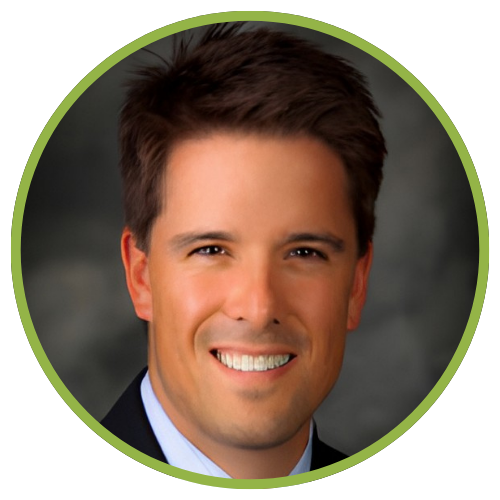
Dr. Walt Baxter
Distinguished Scientist and Bakken Fellow, In Vivo Use Condition Team for Cardiac Rhythm Management, Medtronic
.png)
Alyssa Panitch
Chair, Wallace H. Coulter Department of Biomedical Engineering at Emory University and Georgia Tech
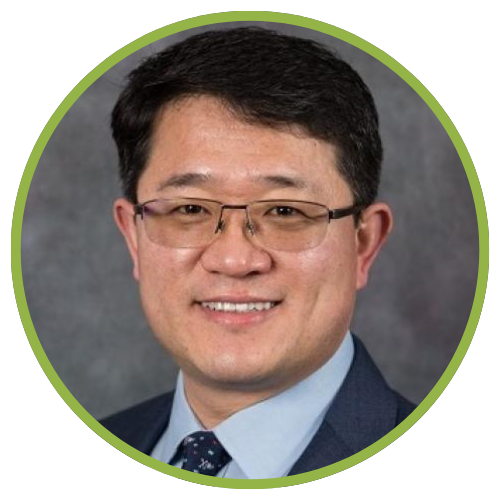
Dr. Aijun Wang
Chancellor's Fellow Professor of Surgery and Professor of Biomedical Engineering, University of California, Davis
Canceled Due To Government Shutdown: Help Define the Country’s R&D Blueprint
📅 Friday, October 10, 2025
⏰ 2:00 PM - 3:30 PM
U.S. National Strategic Plan for Advanced Manufacturing will hold a Town Hall at BMES2025 to request input from the biomedical engineering community. Join us for a town hall event designed for BMES Annual Meeting participants to help shape the future of federal research and development in advanced manufacturing. Participants will share insights to help define the priorities for the 2026 – 2030 National Strategic Plan for Advanced Manufacturing, which guides Federal efforts to enhance the competitiveness of U.S. manufacturing. The plan is revised every four years to provide new federal priorities in advanced manufacturing research and development, aiming to create jobs, boost economic growth across various sectors, and strengthen national security. This town hall session augments an online Request for Information (RFI), enabling participants to voice their views and catalyze deeper input into priority areas.
The White House Office of Science and Technology Policy has posted the complete set of questions in the Federal Register at: https://www.federalregister.gov/documents/2025/06/20/2025-11379/notice-of-request-for-information-national-strategic-plan-for-advanced-manufacturing.
The National Science and Technology Council’s Subcommittee on Advanced Manufacturing will manage the RFI process, and the NIST Office of Advanced Manufacturing will collect and analyze the information.
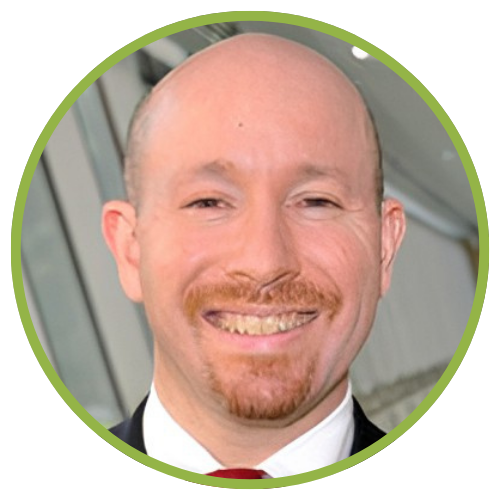
Dr. Robert Rudnitsky
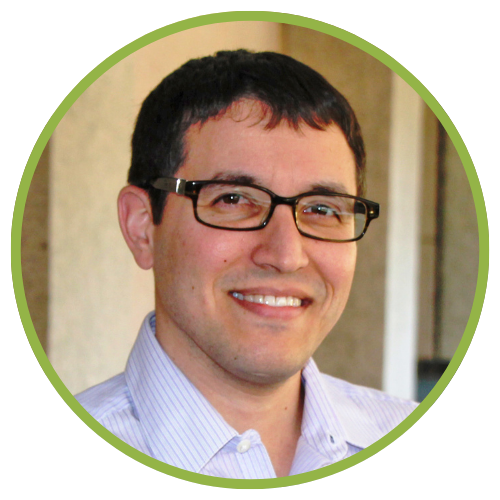
Dr. David Rampulla
-
Learn More About the Moderators
Robert Rudnitsky, Physicist, Division Chief of the Strategy and Planning Division at the National Institute of Standards and Technology (NIST) Advanced Manufacturing National Program Office (AMNPO)
Robert Rudnitsky is a Physicist and is the Division Chief of the Strategy and Planning Division at the National Institute of Standards and Technology (NIST) Advanced Manufacturing National Program Office (AMNPO). Robert received a Ph.D. in Applied Physics from Stanford University, where he was a Hertz Fellow, and a B.A. from Yale University. At Stanford, his research was at the intersection of microelectromechanical systems (MEMS), nanotechnology, and biotechnology. He designed and fabricated advanced MEMS sensors to measure the binding forces between pairs of protein molecules, and developed thermodynamic models of the molecular interactions.
Prior to coming to NIST as Scientific Advisor to the Director the Center for Nanoscale Science and Technology, Robert worked as a Physicist in the U.S. State Department in the Office of Space and Advanced Technology, where he chaired the U.S. National Nanotechnology Initiative (NNI) Global Issues in Nanotechnology Working Group, which coordinated United States Government international activities related to nanotechnology. He has served as Chair of the NATO Science for Peace and Security (SPS) Advisory Committee, which evaluated and recommended the allocation of foreign assistance resources for programs in NATO partner countries and Afghanistan. He was also elected the founding chair of the international Organization for Economic Cooperation and Development (OECD) Working Party on Nanotechnology. His private sector experience includes working in New York as an investment banker specializing in acquisitions of privately held companies, including manufacturing companies, and as president of a small company.
Robert has research experience in microelectromechanical systems, device fabrication, nanotechnology, biophysics, biotechnology, microfluidics, and sensors. As Division Chief, Robert provides scientific and technical guidance for the Manufacturing USA program, and develops strategy for new programs, including the planning for the CHIPS Advanced Packaging Manufacturing Program.
Dr. David Rampulla, Deputy Director, Extramural Science Program, Division Director
Dr. Rampulla is Director of the NIBIB Division of Discovery Science and Technology (DDST). He holds a B.S. from Columbia University and a Ph.D. from Carnegie Mellon University, both in Chemical Engineering. Dave was a National Research Council Postdoctoral Fellow at the National Institute of Standards and Technology and has research experience in academia, government, and industry. His research career spanned both basic and applied sciences – from nano to bio – and the common thread throughout was investigating phenomena at surfaces and interfaces.

Live from the BMES Show Floor: Office Hours Podcast
📅 Friday, October 10, 2025
⏰ 3:45 PM - 4:45 PM
Join us for a special live recording of Office Hours with Liz Wayne right from the BMES Annual Meeting show floor! Host Dr. Liz Wayne sits down with BMES President Dr. Shelly Sakiyama-Elbert for an engaging conversation about the future of biomedical engineering, leadership in the field, and the exciting innovations shaping our community. Don’t miss this unique chance to be part of the audience as the podcast comes to life!
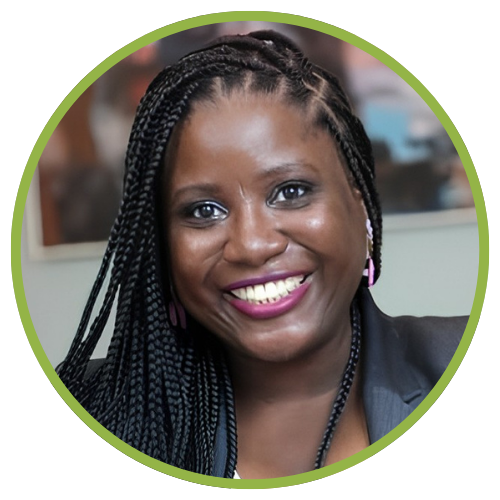
Dr. Liz Wayne
Office Hours Host
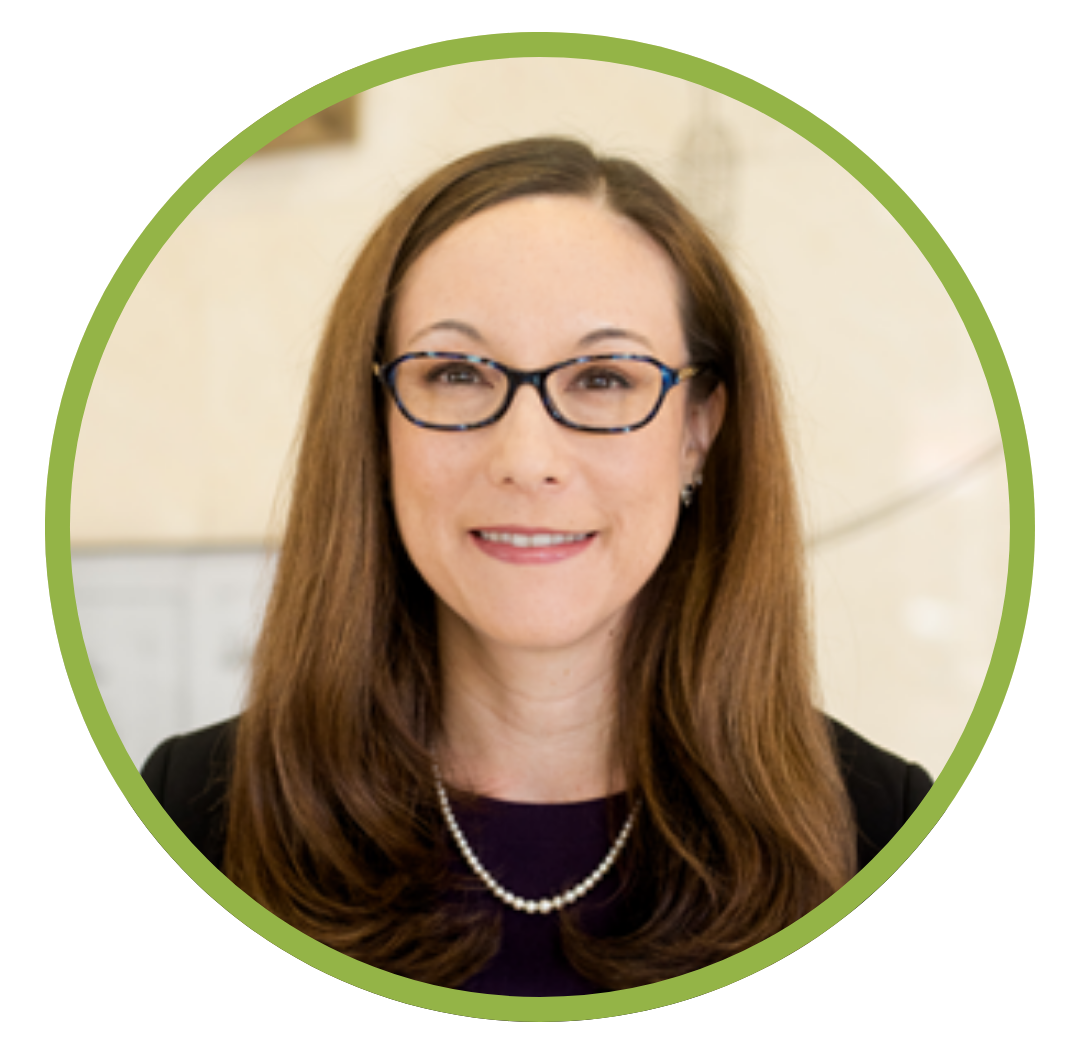
Dr. Shelly Sakiyama-Elbert
BMES President & Podcast Guest
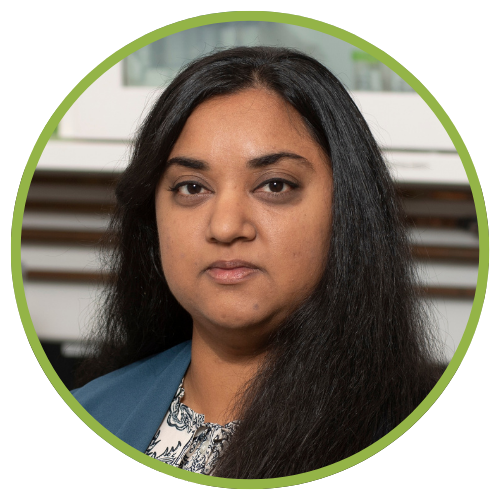
Dr. Meenal Datta
BMES Rita Schaffer Young Investigator Award
📅 Saturday, October 11, 2025
⏰ 11:00 AM - 12:00 PM
Mechano-Immunology: On Earth and in Space
In honor of former BMES Executive Director Rita Schaffer, the Rita Schaffer Young Investigator Award recognizes exceptional early-career researchers shaping the future of biomedical engineering. Join us for this year’s award lecture featuring Meenal Datta, PhD, Assistant Professor of Aerospace and Mechanical Engineering at the University of Notre Dame.
.png)
Dr. Stacey Finley
BMES Mid-Career Award
📅 Saturday, October 11, 2025
⏰ 11:00 AM - 12:00 PM
Decoding the Tumor Ecosystem Through Systems Biology Modeling
The BMES Mid-Career Award recognizes members who demonstrate exceptional leadership and achievements in scholarship, education, mentorship, and the practice of biomedical engineering. Join us for this year’s award lecture featuring Stacey Finley, PhD, Nicole A. and Thuan Q. Pham Professor in the Alfred E. Mann Department of Biomedical Engineering, Department of Quantitative and Computational Biology, and Mork Family Department of Chemical Engineering and Materials Science, and Director of the Center for Computational Modeling of Cancer at the University of Southern California.
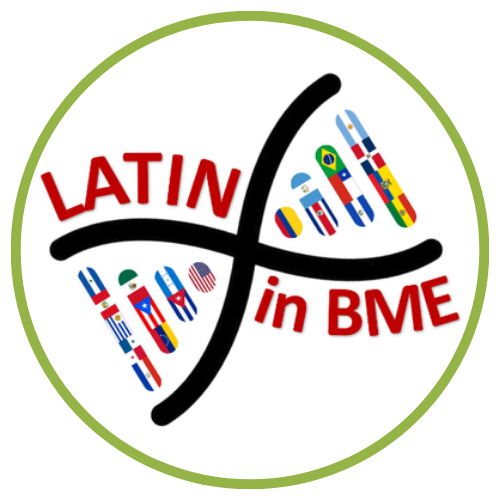
Voices and Stories in LatinXinBME
📅 Saturday, October 11, 2025
⏰ 1:00 PM - 2:30 PM
Join us on the Exhibit Hall Stage for an inspiring storytelling session featuring members of LatinXinBME, a global community of Latino/as in Biomedical Engineering. Four speakers will share personal stories that weave together their scientific journeys with identity, culture, and lived experience. The session highlights the powerful voices shaping our field and the power of storytelling to build community. A Q&A and informal mingling will follow.
Speakers:
-
Valentina Dargam, Florida International University, LatinXinBME Former President
-
Yan Carlos Pacheco, University of Oregon, LatinXinBME President
-
Andrea Rivera, University of California, San Diego, LatinXinBME Communications Chair
-
Ana Valentin Cabrera, Florida International University, LatinXinBME Symposium Chair
Science Communications & Policy Workshop
📅 Saturday, October 11, 2025
⏰ 2:30 PM - 4:00 PM
Join us to find your power as a science communicator and come away with tools and resources to build your sci-comm portfolio. First, learn from Katie Orenstein, CEO of the OpEd Project on identifying the source of credibility; the patterns and elements of persuasion; the difference between being “right” and being effective; how to preach beyond the choir; and how to think bigger—to have more impact in the world. Then, learn from Dr. Tepring Piquado, CEO of the National Science Policy Network on how policies are made and how to leverage your credibility to influence them. She will discuss strategies for tailoring your message to policymakers and the public; building trust; and framing complex findings in ways that drive real-world decisions. Whether you’re new to science communication or looking to refine your approach, you’ll leave with practical tools and inspiring examples to help your research shape policies that matter. Both speakers will leave us with follow on options for additional training and interaction.
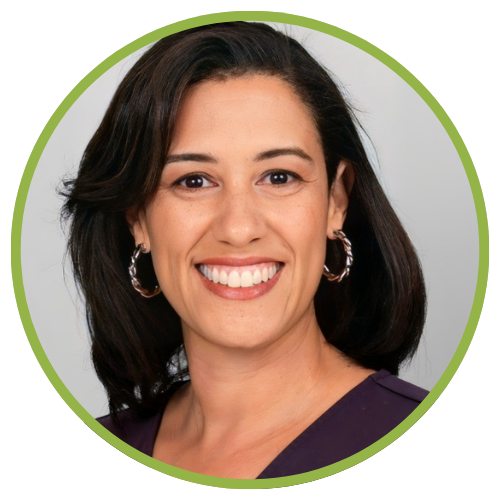
Dr. Tepring Piquado

Katie Orenstein
-
Learn More About the Speakers
Katie Orenstein, CEO of the OpEd Project
“Write to Change the World” from 2:30 PM – 3:30 PMMs. Orenstein, the founder and CEO of the OpEd project is a successful author and dynamic communicator, who will explore with the group what it means to be an expert. Participants will have time to explore ideas about credibility, authority, and knowledge. “Write To Change the World” is a discovery-based interrogation of authority and knowledge. It walks participants through a method for changing hearts and minds. The world becomes more intelligent when we access all our intelligence. The OpEd Project believes that the best ideas, no matter where they come from, should have a chance to be heard and to change the world.
Dr. Tepring Piquado, CEO of the National Science Policy Network
“Beyond the Paper: Science Communication as a Tool for Making an Impact” from 3:30 PM - 4:00 PMDr. Tepring Piquado will teach participants how to best target their outreach and science communication for maximum impact. Scientists produce knowledge that can transform communities, economies, and the environment—yet too often that knowledge stays within academic circles. This session explores how to go beyond publishing papers and effectively communicate science to influence policy. We’ll discuss strategies for tailoring your message to policymakers and the public; building trust and credibility; and framing complex findings in ways that drive real-world decisions. Whether you’re new to science communication or looking to refine your approach, you’ll leave with practical tools and inspiring examples to help your research shape policies that matter.
Dr. Piquado is a seasoned policy researcher, government relations expert, and science advisor whose work bridges the worlds of science, technology, and public policy. She currently serves as CEO of the National Science Policy Network, where she leads efforts to connect STEM researchers with opportunities to inform evidence-based policymaking. She has served as a consultant, lobbyist, and government relations specialist, working with local, state, and federal officials and nonprofit leaders to translate research into actionable policy. At RAND Corporation, she led research projects supporting evidence-based decisions at every level of government and taught ethics and policy design at the RAND Graduate School of Public Policy. Dr. Piquado holds a Ph.D. and M.S. in neuroscience from Brandeis University and a B.S. in computer science from Georgetown University.
Are you planning to attend this workshop?
Robert A. Pritzker Distinguished Lecture Roundtable & Meet-and-Greet Shu Chien
📅 Saturday, October 11, 2025
⏰ 4:30 PM - 5:30 PM
We’ve invited recipients of the prestigious Pritzker Award to a special roundtable, moderated by BMES President Shelly Sakiyama-Elbert, centered on the state of biomedical engineering—everything from the latest advances to research funding.
Professor Shu Chien, MD, PhD, past President of BMES, AIMBE, APS, and FASEB will be on hand to provide introductory remarks. Dr. Chien is internationally recognized as one of the foremost pioneers and educators in biomedical engineering.

Dr. Shelly Sakiyama-Elbert
BMES President & Moderator
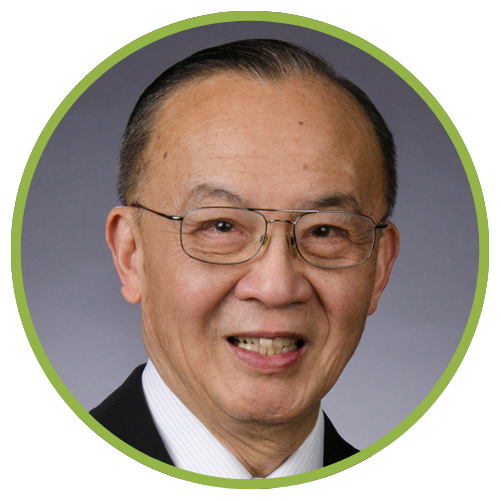
Dr. Shu Chien
Opening Remarks with a Post-Session Meet & Greet
Conference Keynote I - Rethinking the Grants Model: Embracing New Research Funding Opportunities
📅 Saturday, October 11, 2025
⏰ 6:30 PM - 8:00 PM
The impact of federal research funding cuts to members of our community has left us with a significant void and much uncertainty.
Join one of the most important conversations of the year as experts from industry, philanthropy, and government share opinions, ideas, and insights on how biomedical engineers and other researchers should consider soliciting funding from channels outside of federal grants.
There will be a Q&A session at the end of the session. We will ask that you submit your questions prior to the event.
The moderator and panelists below are the ones who have been confirmed so far. Please check back often as additional panelists accept our invitation to participate.
-
Learn More About the Moderator
As CEO of Athena, Holly leads efforts to advance women in STEM and drive gender equality across global industries. Under her leadership, Athena is emerging as a global force, dedicated to equipping female leaders and male allies to succeed in science and technology fields. Holly's career spans transformative roles, including leading the launch, merger, and financial turnaround of three companies in cleantech, biotech, and STEM.
Previously, Holly served as a Presidential Appointee in President George W. Bush's administration, advancing critical legislative initiatives at the U.S. Environmental Protection Agency and State Department. She was also a delegate in California Governor Jerry Brown's Cleantech Trade Mission to China.
Her exceptional leadership has earned widespread recognition. Holly delivered the acclaimed TEDx San Diego Talk, "Uncaging the Confidence Within," where she explored the mindset shifts that fuel personal transformation and courageous leadership. She was inducted into the San Diego Women's Hall of Fame in 2023 and named among San Diego's Top 500 Most Influential Leaders from 2018-2024. Additionally, she's been honored as CEO of the Year and Businesswoman of the Year.
Smithson began her career in broadcast journalism as a News Director and Anchor for television and all-talk radio stations. She is a graduate of the Harvard Business School Executive Leadership Program and holds a Bachelor of Science degree in broadcast communications from East Carolina University.
-
Learn More About the Speakers
Taya Cassens is a Senior Principal Systems Technology Engineer at Medtronic, where she develops next-generation technologies for cardiac implantable devices, focusing on novel strategies for diagnosing, pacing, and protecting patients with arrhythmias. She has contributed across the medical device lifecycle, including 6 years at Medtronic working on deep brain stimulation, heart valves, defibrillation, and diagnostic devices, and earlier in her career supported military power generation systems with Cummins and structural heart innovation at Boston Scientific.
Taya holds a B.S. in Mechanical Engineering from the University of Missouri, Kansas City and dual M.S. degrees in Mechanical Engineering and Systems Engineering from the University of St. Thomas. She is also a licensed Professional Engineer in the state of Minnesota.
Taya is also a leader with the Society of Women in Engineering and has been deeply involved with outreach to University partners in the United States and beyond. Taya is connected with other thought leaders at Medtronic who interact with overseas entities that link government-universities and for-profits like Medtronic.
Ishita Das, PhD, is a director on the Science Philanthropy Accelerator for Research and Collaboration (SPARC) team at Milken Institute Strategic Philanthropy, where she leads cross-disciplinary projects. Her expertise lies in biomedical research, science policy, stakeholder engagement, workforce diversity, strategic planning, and project management. At the Milken Institute, she applies this knowledge to guide philanthropic investments to have a meaningful impact on science and health. Das advises philanthropists and foundations and implements strategies to deploy philanthropic capital to advance health research priorities. Previously, Das was at a management consulting firm, where she led cross-functional teams to implement science and health initiatives for federal agencies, nonprofits, and public-private partnerships, including the National Institutes of Health, the Office for Human Research Protections, the National Human Genome Research Institute, the National Institute of Environmental Health Sciences, the Patient-Centered Outcomes Research Institute, and the Centers for Medicare & Medicaid Services. Das received her bachelor's degree in biology from the University of North Carolina, Chapel Hill, and her doctorate in cellular and molecular biology from the University of Michigan, Ann Arbor.
Elizabeth (Liz) Noblin, PhD, is a CIRM Fellow, Program Development and Portfolio Management. In this role, she has been instrumental in coordinating the development of CIRM funding programs. She was previously a Senior Science Officer with the CIRM Review Team, which manages the review of funding applications. Before joining us at CIRM, Liz was a program and project manager at a well-known genetics platform, where she supported both the Research and Therapeutics divisions. Liz received a PhD in Genetics from Yale and completed her postdoc at Stanford
Conference Keynote II - The Impact of AI in Biomedical Engineering Innovation: A Conversation with Clinicians and Biomedical Engineers
📅 Sunday, October 12, 2025
⏰ 10:00 AM - 11:00 AM
Join this impressive panel of leading AI thinkers as they discuss the present state and the future of artificial intelligence in healthcare applications and biomedical pedagogy.
-
Learn More About the Moderator
Dr. Daniel Kraft is a Stanford and Harvard-trained physician-scientist, inventor, entrepreneur, and innovator. With over 25 years of experience in clinical practice, biomedical research and healthcare innovation, Kraft has served as faculty chair for Medicine at Singularity University since its inception in 2008, and in 2011 founded NextMed Health (previously called Exponential Medicine) a program and community that explores convergent, rapidly developing technologies and their potential in biomedicine and healthcare. He serves as Chair of the XPRIZE Pandemic & Health Alliance.
Following undergraduate degrees from Brown University and medical school at Stanford, Daniel was Board Certified in both Internal Medicine & Pediatrics after completing a Harvard residency at the Massachusetts General Hospital & Boston Children's Hospital, and fellowships in hematology, oncology, and bone marrow transplantation at Stanford.
Daniel is a member of the Inaugural class of the Aspen Institute Health Innovators Fellowship and is member of the Kauffman Fellows Society. He is a managing partner with Continuum Health Ventures which is focused on funding early stage health tech companies enabling the democratization of health and improved healthspan for all.
He is often called upon to speak to the future of health, medicine and technology and has given four TED and two TEDMED Talks and has delivered keynotes to a diverse array of organizations.
He has multiple scientific publications (including in Nature and Science) and medical device, immunology, and stem cell-related patents through NIH-funded faculty positions with Stanford University School of Medicine and as clinical faculty for the pediatric bone marrow transplantation service at the University of California San Francisco.
Daniel's academic research has focused on: stem cell biology and regenerative medicine, stem cell-derived immunotherapies for cancer, bioengineering human T-cell differentiation, and humanized animal models. His research has been published in journals that include Nature and Science. His clinical work has focused on: bone marrow & hematopoietic stem cell transplantation for malignant and non-malignant diseases in adults and children, medical devices to enable stem cell based regenerative medicine.
He is heavily involved in digital health, founded Digital.Health, is on the board of Healthy.io and advises several Fortune-50 and digital health-related startups. Daniel recently founded IntelliMedicine, focused on personalized, data-driven, precision medicine. He is also the inventor of the MarrowMiner, an FDA-approved device for the minimally invasive harvest of bone marrow, and founded RegenMed Systems, a company developing technologies to enable adult stem cell-based regenerative therapies.
Daniel is an avid pilot and has served in the Massachusetts and California Air National Guard as an officer and flight surgeon with F-15 & F-16 fighter Squadrons. He has conducted research on aerospace medicine that was published with NASA, with whom he was a finalist for astronaut selection.
-
Learn More About the Speakers
Dr. Brian Anderson is the Chief Executive Officer of the Coalition for Health AI (CHAI), a non-profit coalition he co-founded in 2021. CHAI is focused on developing a set of consensus-driven guidelines and best practices for Responsible AI in Health, as well as supporting the ability to independently test and validate AI for safety and effectiveness.
Prior to leading CHAI, Dr. Anderson was the Chief Digital Health Physician at MITRE, where he led research and development efforts across major strategic initiatives in digital health alongside industry partners and the U. S. Government. He was responsible for leading much of MITRE’s work during the COVID-19 pandemic, working closely with the White House COVID Task Force, as well as Operation Warp Speed. He also led MITRE’s largest R&D effort in Oncology, focusing on the initial development of mCODE and the use of AI in more efficient and inclusive clinical trial design.
Dr. Anderson is an internationally recognized author and expert in digital health, and is regularly engaged as a speaker on digital health innovation, health standards development, clinical decision support systems, and interoperability. Prior to MITRE, Anderson led the Informatics and Network Medicine Division at athenahealth. He has also served on several national, and international, health information technology committees in partnership with the Office of the National Coordinator (ONC), the National Institutes of Health (NIH) and the Organization for Economic Cooperation and Development (OECD).
Dr. Michael King is a national leader in the field of biomedical engineering, and an expert in the following research areas: the adhesion and transport of circulating cells; cellular delivery of anti-cancer therapeutics in the bloodstream; the mechanotransduction of cancer and immune cells in shear flow; and the development of 3D in vitro models of bloodborne metastasis. Dr. King completed a PhD in chemical engineering at the University of Notre Dame and postdoctoral training in bioengineering at the University of Pennsylvania. He has written textbooks on the subjects of statistical methods and microchannel flows, and has received several awards including the NSF CAREER Award, Outstanding Research Awards from the American Society of Mechanical Engineers and the American Society of Clinical Chemistry, and was a James D. Watson Investigator of New York State. King is a Fellow of the American Institute of Medical and Biological Engineering (AIMBE), Biomedical Engineering Society (BMES), International Academy of Medical and Biological Engineering (IAMBE), American Association for the Advancement of Science (AAAS), and the National Academy of Inventors (NAI), and served as founding Vice President of the International Society of Bionic Engineering. Since 2013 he has been the Editor-in-Chief of Cellular and Molecular Bioengineering, an official journal of the BMES. He previously served as Chair of the BME Council of Chairs, and most recently as the Chair of the AIMBE College of Fellows.
Prior to joining the Rice faculty in 2024, Michael R. King was the J. Lawrence Wilson Professor and Department Chair of Biomedical Engineering at Vanderbilt University. Before that he was the Daljit S. and Elaine Sarkaria Professor at Cornell University, and he started his faculty career at the University of Rochester.
Dr. Rui Carlos Pereira de Sá is a biomedical engineer and physiologist. Throughout his career, he developed, validated and deployed computational techniques able to produce quantitative insight on the human lung in health and disease. He is an Engineer in Physics (Instituto Superior Técnico, Lisbon, Portugal); his Ph.D. work (Université Libre de Bruxelles, Brussels, Belgium), focused on understanding the impact of gravity on respiratory mechanics during sleep, through human studies on earth and in two space shuttle flights. Attaining this goal required developing algorithms using artificial neural networks for breath detection during sleep and wavelet analysis.
Prior to joining the NIH, Dr. Sá was an Assistant Professor of Physiology, Division of Pulmonary, Critical Care, Sleep Medicine, and Physiology at the University of California, San Diego. Since 2008 his main research tool was functional Magnetic Resonance Imaging (MRI) of the lung, namely a proton MR technique – Specific Ventilation Imaging - capable of quantifying ventilation in the human lung. Specific Ventilation Imaging uses inhaled oxygen as a T1 contrast agent, to create quantitative map specific ventilation. The SVI technique is now available at several centers on three continents, and is used to further out understanding of asthma, cystic fibrosis, and other respiratory diseases.
Dr. Sá first joined NIH and NIBIB as NIH Data and Technology Advancement (DATA) National Service Scholar (2020-2022), on detail from the University of California, San Diego. His profound knowledge of lung physiology, combined with years of experience in developing, validating and translating quantitative analysis software tools directly applicable to the lung were aligned with and necessary for addressing the immediate and urgent need for Covid-19 imaging processing tools. Accelerating the deployment of AI/ML image processing tools is the priority for NIBIB’s Medical Imaging and Data Resource Center (MIDRC) project, a project he actively supported for the duration of his National Service Scholarship. Dr. Sá rejoined the NIH as a Program Director in 2023.
Pantea Khodami, Pantea Khodami is Worldwide Head of Life Sciences and Precision Medicine at AWS, where she works with leading pharma companies to apply cloud and AI technologies that accelerate innovation. She previously led global genomics solutions at AWS and spent more than a decade at Illumina, where she launched over 30 genomics products that helped make next-generation sequencing a cornerstone of biomedical engineering and precision medicine worldwide. Trained in materials science and engineering at MIT, Pantea’s early research focused on nanoparticle delivery systems for HIV vaccines and implantable medical devices, experience that shapes her perspective on how AI can advance biomaterials and biomedical engineering. Beyond her industry work, she serves on the board of Athena, a global women-in-STEM leadership network, and SD2, a nonprofit expanding access to education and STEM opportunities for underrepresented groups.
Workshop: Optimized Data-Driven AI for Biomedical Data Analysis
In partnership with MathWorks. BMES Certificate of Participation
📅 Sunday, October 12, 2025
⏰ 11:00 AM - 2:00 PM
In recent years, the integration of artificial intelligence (AI) techniques has revolutionized biomedical data analysis. Researchers can leverage AI to extract valuable insights from biomedical data, enabling more accurate diagnostics, personalized monitoring, and effective treatment strategies. As AI technologies continue to advance rapidly, their integration into biomedical data analysis offers the potential for improved accuracy, efficiency, and automation. There is a growing demand for advanced techniques for predictive diagnosis and monitoring, early disease detection, and personalized treatment pathways in healthcare. This session explores the potential of AI algorithms, including machine learning and deep learning, to enhance biomedical data interpretation. We will discuss techniques for reducing computational complexity and performing structural and data-type compression without compromising the performance of AI models. By the end of the workshop, participants will have a comprehensive understanding of the techniques and tools necessary to implement and optimize AI-driven biomedical data processing for deployment in healthcare, fitness, and biomedical research.
The workshop is open to all conference attendees who have prepaid the $25 workshop fee when registering for the annual meeting.
-
Topics That Will Be Covered:
During an interactive session, participants will explore the following topics:
-
Introduction to tools used for AI-based data processing
-
Detection of seizure in EEG using a time-frequency-based convolutional neural network
-
Classification of brain MRI using deep learning
-
Optimization of signal source separation algorithm using a convolutional neural network
This workshop aims to provide participants with an understanding of the potential applications of AI to incorporate AI algorithms in processing, analyzing, and interpreting complex biomedical data. Additionally, the workshop will showcase cutting-edge AI-powered tools, methodologies, and resources that streamline the development of machine learning algorithms and deep learning models. The workshop is suitable for individuals with all levels of experience in data processing. While no prior knowledge is required, experienced users will benefit from the introduction of new tools, tips, and tricks for applying advanced techniques to biomedical data processing.
-
-
Learn More About the Moderator
Reza Fazel-Rezai, Ph.D., Senior Science and Education Application Engineer, MathWorks
Dr. Reza Fazel-Rezai, with a Ph.D. and MS in Biomedical Engineering and a BS in Electrical Engineering, brings over two decades of experience in both industry and academia. As a senior research scientist, research team manager, and the founding Director and tenured full Professor of Biomedical Engineering, he has extensive expertise and background in the field. Dr. Fazel-Rezai has authored more than 200 scientific publications, edited and published seven books, and pursued diverse research interests in biomedical signal and image processing, particularly through machine learning and deep learning methods. Passionate about leveraging and sharing his skills to help others achieve their goals, he currently serves as an ABET PEV for Biomedical Engineering, works part-time as an instructor at UC San Diego, and is a full-time Senior Science and Education Application Engineer at MathWorks.
-
Topics That Will Be Covered:
During an interactive session, participants will explore the following topics:
-
Introduction to tools used for AI-based data processing
-
Detection of seizure in EEG using a time-frequency-based convolutional neural network
-
Classification of brain MRI using deep learning
-
Optimization of signal source separation algorithm using a convolutional neural network
This workshop aims to provide participants with an understanding of the potential applications of AI to incorporate AI algorithms in processing, analyzing, and interpreting complex biomedical data. Additionally, the workshop will showcase cutting-edge AI-powered tools, methodologies, and resources that streamline the development of machine learning algorithms and deep learning models. The workshop is suitable for individuals with all levels of experience in data processing. While no prior knowledge is required, experienced users will benefit from the introduction of new tools, tips, and tricks for applying advanced techniques to biomedical data processing.
-
-
Learn More About the Moderator
Reza Fazel-Rezai, Ph.D., Senior Science and Education Application Engineer, MathWorks
Dr. Reza Fazel-Rezai, with a Ph.D. and MS in Biomedical Engineering and a BS in Electrical Engineering, brings over two decades of experience in both industry and academia. As a senior research scientist, research team manager, and the founding Director and tenured full Professor of Biomedical Engineering, he has extensive expertise and background in the field. Dr. Fazel-Rezai has authored more than 200 scientific publications, edited and published seven books, and pursued diverse research interests in biomedical signal and image processing, particularly through machine learning and deep learning methods. Passionate about leveraging and sharing his skills to help others achieve their goals, he currently serves as an ABET PEV for Biomedical Engineering, works part-time as an instructor at UC San Diego, and is a full-time Senior Science and Education Application Engineer at MathWorks.
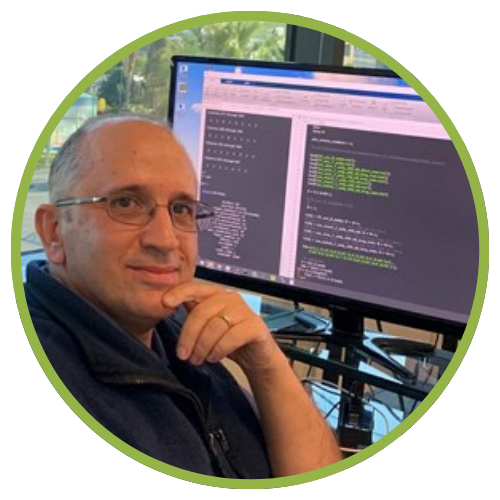
Dr. Reza Fazel-Rezai

1101 Wilson Boulevard
6th Floor - Suite 953
Arlington, VA 22209
Contact Us
(301) 459-1999
BMES is the premier professional community for biomedical engineering innovation and excellence. Our vibrant organization unites more than 6,700 members and a network of over 25,000 across academia, industry, and healthcare, supported by 110+ student chapters worldwide. Through our conferences, specialized interest groups, four leading journals and a myriad of initiatives, we drive advances in medical technology, research, and patient care. Join us in shaping the future of healthcare through engineering.


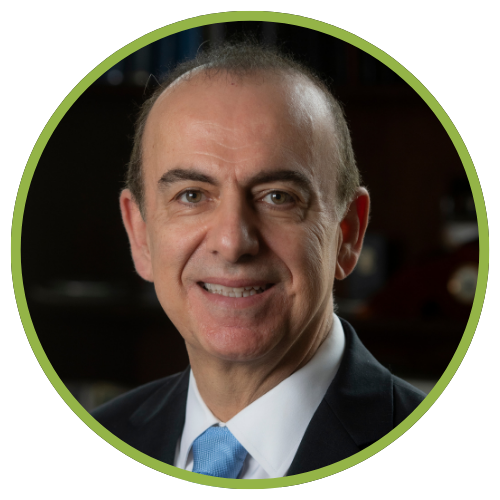
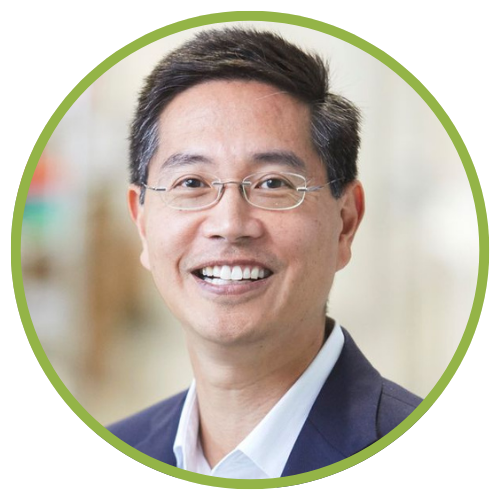

.png)


.png)


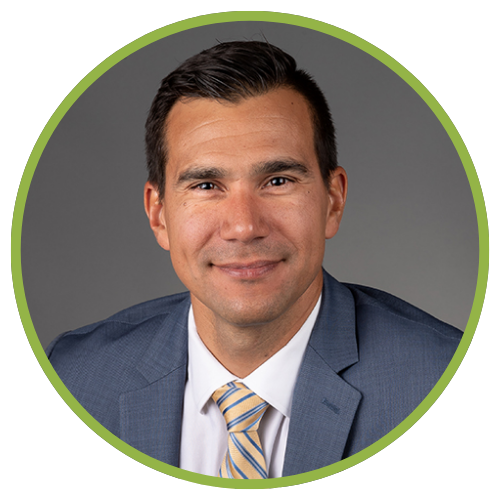
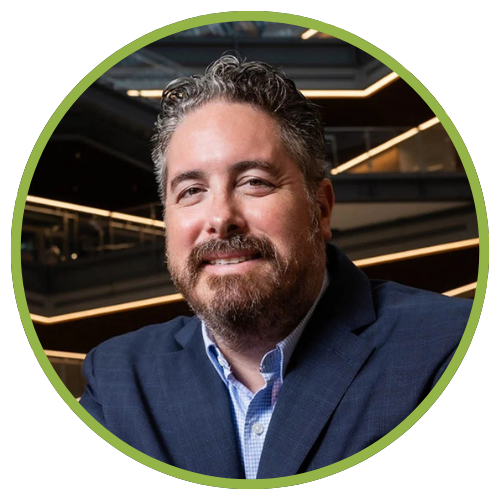
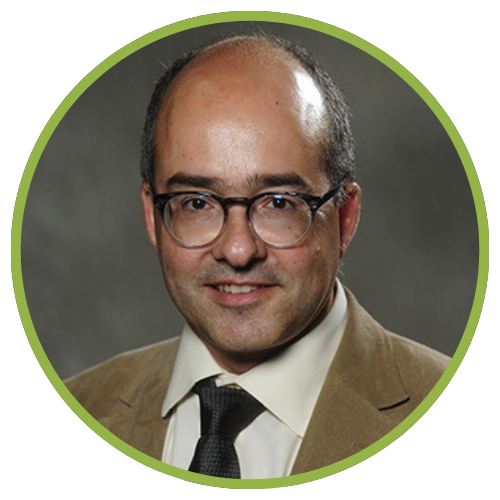
.png)
%20WHITE.png)